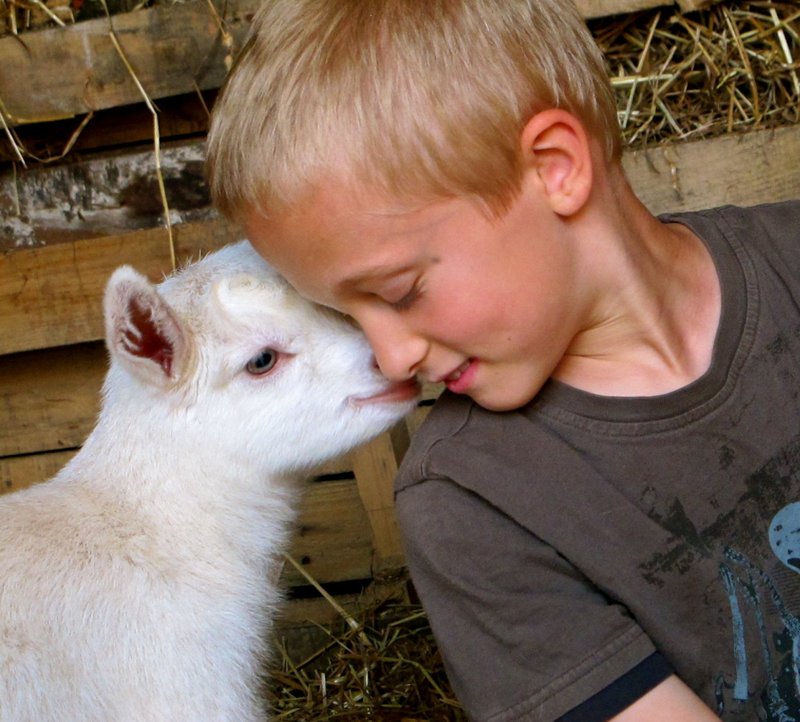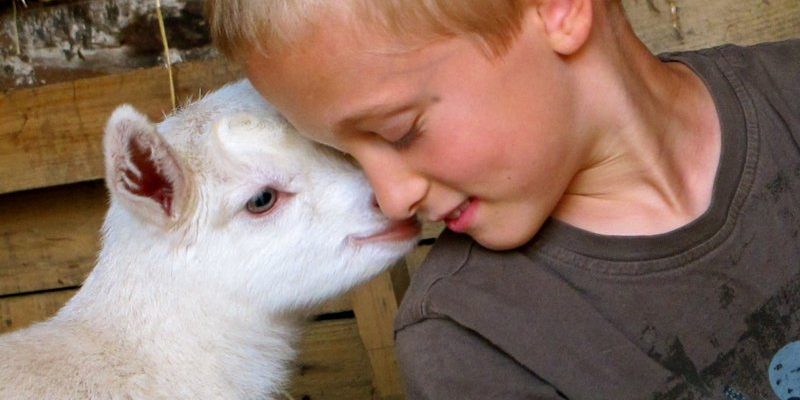
Breeding can seem overwhelming, but it’s really more about enjoying the process than stressing over every detail. Just like nurturing a plant, it takes time, attention, and a little know-how to raise healthy, happy goats. In this guide, we’ll walk through the steps from mating to caring for those playful kids, ensuring you feel confident in your journey.
Understanding Pygmy Goat Gestation
Gestation in Pygmy goats typically lasts between 145 to 155 days, a manageable timeframe when you think about it. It’s almost like waiting for your favorite dish to bake in the oven—not too long, and the end result is a joy to behold! During this time, it’s important to monitor the health of the pregnant doe. Make sure she is eating well, staying hydrated, and feeling comfortable.
Here’s the thing: pregnant goats need extra care. You’ll want to provide a balanced diet rich in nutrients. This includes hay, pasture, and specially formulated goat feed. A good way to think about it is, if you were expecting a baby, you’d want to eat healthy food, right? The same goes for your doe. Proper nutrition not only supports her, but it also helps ensure that her kids are healthy when they arrive.
Make sure you keep an eye out for any signs of distress. Changes in behavior or eating habits can signal complications. Regular check-ups with a vet can help keep everything on track as your doe approaches her due date.
Kidding: What to Expect
Kidding is like the grand finale of your goat breeding adventure—exciting and a bit nerve-wracking! When the time comes, you’ll want to be prepared for the big day. Typically, does will show signs of labor, such as restlessness, pawing at the ground, and even nesting behavior. It can be a bit like watching a pot boil; it takes patience, and then suddenly—it’s happening!
Generally, does can have one or two kids at a time, although triplets are not uncommon. As they begin to give birth, you might find yourself playing the role of a supportive friend. Just offer a calm presence, but let nature take its course. Most goats can handle the process without much help.
After the kids are born, you’ll want to ensure that they can nurse right away. Colostrum, the first milk the mother produces, is packed with antibodies that are crucial for the kids’ health. It’s like their first superhero drink! Ensuring they get this helps them build strong immune systems.
Caring for Newborn Kids
Once the kids are here, the fun really begins! They’re adorable and full of energy, but they also need some special care. For the first few weeks, their primary source of nutrition will come from mom’s milk. Make sure the mother has access to clean water and high-quality food to support her and her new little ones.
You might be wondering how to tell if the kids are getting enough milk. One good way is to check their bellies—if they’re round and firm, they’re likely getting their fill. You can also watch their energy levels; active kids are happy kids!
As the weeks go by, begin introducing solid food. You can offer small amounts of goat creep feed, hay, and fresh greens. This transition is like teaching them to ride a bike; it takes a bit of time and practice.
Don’t forget about socialization! Kids are social animals, so interacting with them helps them grow up friendly and well-adjusted. Spend time with them, let them explore, and watch their personalities shine!
Health Checks for Pygmy Goats
Health checks are essential for keeping your Pygmy goats in top shape. Regular veterinary visits can catch issues before they become serious. Think of it like a routine check-up for yourself—preventive care is key!
Pay close attention to basic health indicators like appetite, energy levels, and weight. If a goat is eating less, seems lethargic, or is losing weight, it’s time to consult a vet.
Additionally, vaccinations, deworming, and hoof trimming are important parts of goat care. Work with your vet to create a health schedule that suits your goats. Keeping a journal can help track their health over time, ensuring nothing slips through the cracks.
Handling Common Challenges
Every goat owner encounters challenges along the way. Maybe a kid is refusing to nurse, or you’ve noticed some unusual behavior in a doe. It’s important to stay calm and approach each issue with a problem-solving mindset.
For instance, if a kid is having trouble nursing, you might need to intervene. Hand-milking the doe can provide the kid with the colostrum it needs. Alternatively, you can use a bottle designed for goat kids.
If your goats seem restless or are making unusual noises, they could be experiencing discomfort. This could be due to improper diet, health issues, or even environmental stress. Observing their behaviors closely will help you determine the root cause of the issue.
Don’t hesitate to reach out to fellow goat breeders or online communities for advice—sharing experiences can be incredibly helpful!
Creating a Safe Environment for Your Goats
A safe environment is crucial for the health and happiness of your Pygmy goats. Start by providing a clean, dry space for them to live. Ensure that their pen is secure from predators and has proper shelter from extreme weather.
Good fencing is key! Pygmy goats are known for their curiosity and mischief, so a sturdy fence is necessary to keep them where they belong. Consider a fence that is at least 4 feet high to prevent them from escaping.
You’ll also want to create a comfortable living space. Provide plenty of bedding material, like straw or wood shavings, to keep them warm and dry. A clean environment helps reduce the risk of illness, so regular cleaning is essential.
Enjoying the Breeding Journey
Breeding Pygmy goats can be one of the most rewarding experiences. It may have its ups and downs, but with patience and care, you’ll watch these delightful beings grow and thrive. Remember, each goat has its own personality, and part of the fun is discovering what makes each one unique.
From the moment you start this journey to the day those kids arrive, think of it as a beautiful chapter in the book of your life. Whether you’re raising goats for fun or for more serious farming, creating a nurturing environment will allow both you and your goats to flourish together.
So, embrace the adventure, learn as you go, and enjoy every adorable moment with your Pygmy goats.

